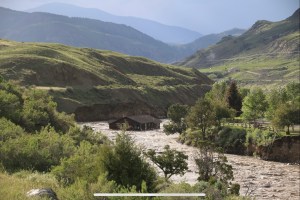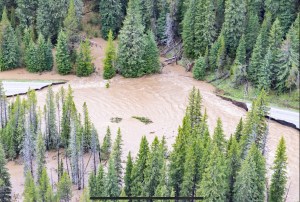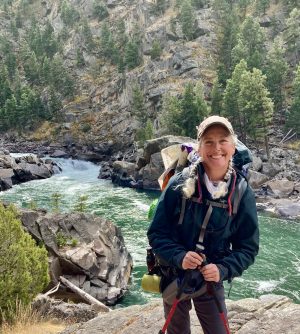Climate Change, Extreme Weather Events, and Our Environmental Promise To Ourselves, Our Guests, and Our Planet
The Yellowstone Floods of 2022 served as a stark reminder of the complex relationship between extreme weather events and climate change. As we witnessed—and continue to witness—the impacts of climate change worldwide it has become imperative for all of us as individuals, communities, businesses, and governments to take decisive action to curb greenhouse gas emissions and foster resilience in the face of a changing climate. Only through collective efforts can we hope to protect invaluable natural treasures like Yellowstone National Park and create a sustainable future for generations to come.
 Â
 
To mitigate the risks posed by climate change and reduce the likelihood of future catastrophic events, a multifaceted approach is essential. Yellowstone Wild has always prided itself on its efforts to minimize its environmental footprint. After the floods of 2022, however, we began reevaluating the less-obvious elements of sustainability—both as a company and personally—with a newly discovered fervor. We are now, more than ever, “practicing what we preach.”

Let us share with you how adversity to our community and business caused by the 2022 flooding has blossomed into consistent action by Yellowstone Wild for the greater good of our planet – our home.
Minimizing landfill waste:
- Our guests are asked to provide their own reusable water bottles.
- All our breakfast and lunch food items are transported in reusable tupperware containers, eliminating the need for plastic wrap.
- We have replaced single-use plastic utensils with compostable alternatives.
- Our hot beverage cups are now 100% compostable.
- We partner with a Gardiner-based food vendor to ensure our breakfasts and lunches are prepared locally, with ingredients found in-state.
- We sort all leftover food items from our tours into compost, recycling, or landfill destinations. It’s a dirty job, but our team is up for the task!
Business operations:
- Our guides perform daily vehicle inspections to ensure all systems are functioning properly; proactively identifying performance issues ensures we can service vehicles before they contribute to unnecessary harmful emissions.
- Our touring fleet is serviced in house with all used automotive fluids transported to appropriate hazardous-waste facilities.
- Vehicles are water washed only when necessary; we use microfiber cloths and “California dusters” for daily tidying up.
- We partner with local vendors for many operational needs, lessening our reliance on long-distance transportation supplies.
- We buy our nonperishable items in bulk in Bozeman; and by keeping accurate inventories of supplies we are able to keep our work-related travel days to two or less per month.
- Our company offers mixed-group public tours for visitors, which keeps several personal vehicles off the road each day this tour operates.
- Most of our communications—including scheduling, evaluations, marketing, accounting, and certifications—are done digitally, greatly decreasing our paper waste.
- We use environmentally friendly cleaning products whenever possible.
- The teaching materials our tour guides use on their tours are laminated and/or available to them digitally.
- Our guides are encouraged to take advantage of our ever-growing research library, which minimizes the need for them to purchase paper books or printouts.
- We operate touring vehicles that allow us to drive safely in a remote and rugged area while also maximizing fuel efficiency and minimizing harmful emissions.
Training and staff involvement:
- We work with our staff, through employee housing alternatives, to minimize unnecessary commuting, which translates into fewer vehicles on the road.
- Our employees are encouraged to practice daily habits that, over time, collectively reduce our impact on the planet. Some examples include:
- Turning water off when not in use;
- Turning heat off or as low as possible if not actively being used;
- Carpooling;
- Purchasing locally grown-and-made food and products;
- Preparing food as a group to reduce energy consumption;
- Supporting ecologically-friendly companies;
- Reducing waste; recycling; and reusing/repurposing if possible.
As we continue to grow and evolve as a company, our commitment to our guests is that we will continue to seek out ways we can collectively contribute to the wellbeing of our planet. We appreciate you helping us do our part when you tour with us at Yellowstone Wild, and take the time to explore, discover, and engage your curiosity in your wild Yellowstone!
Content courtesy Yellowstone Wild General Manager Tyrene R. / Photos courtesy National Park Service – Yellowstone.

To learn more about Tyrene and the rest of the Yellowstone Wild team visit our “About Us” webpage.
